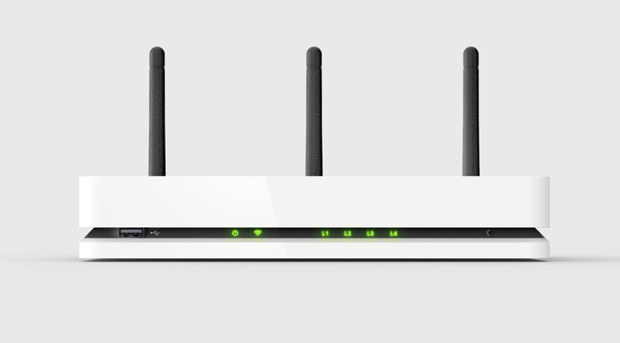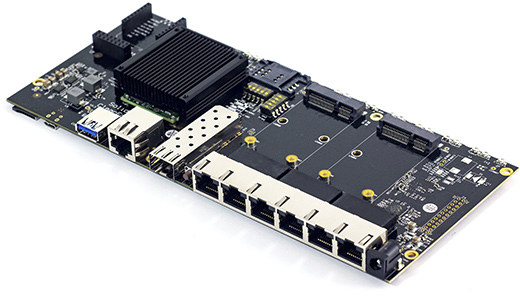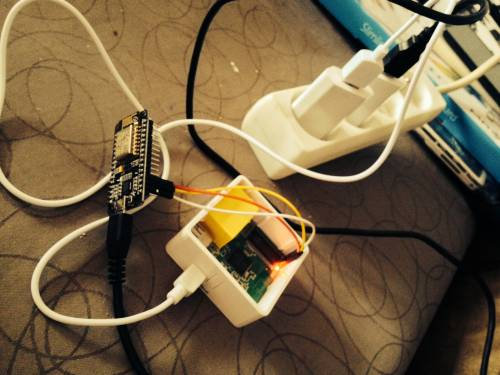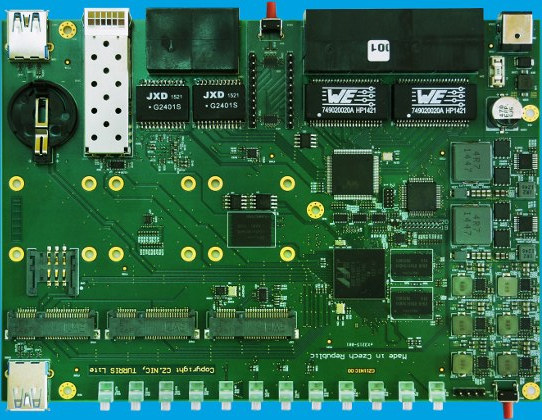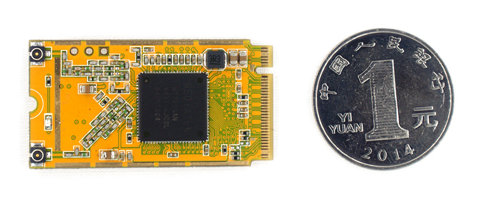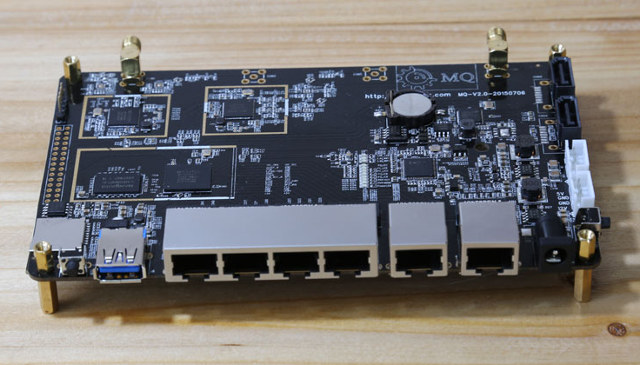CZ.NIC is a non-profit organization running the .cz domain of the Czech Republic, and as part of their activities they are also making open source hardware routers such as Turris 1.1 based on Freescale QorIQ P2020 communication processor. I’ve previously written about Turris Omnia router based on Marvell ARMADA 385 dual core processor, and the organization has now launched an Indiegogo campaign where you can get the bare board for $99, and a complete router with WiFi modules, power supply, cables, and enclosure for $189, shipping not included. Turris Omnia router specifications: Processor – Marvell ARMADA 385 (88F6820) dual core ARMv7 processor @ 1.6 GHz with 1MB L2 cache System Memory – 1GB DDR3 Storage – 4GB flash, mSATA slot Connectivity 5x Gigabit Ethernet LAN ports 1x Gigabit Ethernet WAN port 1x SFP cage 3×3 MIMO 802.11ac, 2×2 MIMO 802.11 b/g/n (Included in router perk, not with bare board) SIM […]
SolidRun ClearFog Pro and Base Router Boards Feature Marvell ARMADA 380/388 Processor
Last month, I wrote about Turris Omnia an upcoming open source hardware router board with 6 Gigbit Ethernet ports and an SFP cage powered by Marvell ARMADA 385 processor. SolidRun has now unveiled ClearFog Pro router board with similar features, but opting instead for either Marvell ARMADA 380 or 388 processor. The company will also soon launch or lower-end version called ClearFog Base with the less ports, but with the same system-on-module as ClearFog Pro: Processor – Marvell ARMADA 380 (88F6810) single core or 388 (88F6828) dual core ARMv7 processor (Cortex A9 class) @ up to 1.6 GHz with 1MB L2 cache, NEON and FPU System Memory – 256MB to 1GB 16-bit DDR3L (ARMADA 380) or 32-bit DDR3L (ARMADA 388) Storage Pro version – M.2 slot, 1x micro SD slot, 2x mSATA/mPCIE Base version – M.2 slot, 1x micro SD slot, 1x mSATA/mPCIE Connectivity Pro version – 6x switched Gigabit […]
How to Use an ESP8266 Board as a WiFi to Serial Debug Board
Telnet and SSH are great to access a Linux device, machine and computer remotely when they are already running, but when you are working on the bootloader and/or kernel themselves, you’ll have to use a serial port to access the terminal / serial console. Boards used to get an RS232 port which you connected to your computer with a NULL modem cable, but these days, most boards and devices expose TTL signals and require a USB to TTL debug board to access the console via a USB cable. If you only have one device close to you computer that’s fine, but if your testbed is a little further. or you need to access the serial console on multiple boards you could consider using ESP8266 module to export the terminal over WiFi. This is exactly what Zoobab did above with a GL.inet router running OpenWRT and NodeMCU board with ESP-12(E) module […]
Turris Omnia is a Feature-Packed OpenWRT Router Board Powered by Marvell ARMADA 385 Processor
FireWRT and WiTi router boards based on Mediatek MT7621A processor offer lots of high speed interfaces with multiple Gigabit Ethernet ports, SATA connectors, and USB 3.0 ports, as well as 802.11ac connectivity for $70 to $80. Sadly FireWRT development was canceled once the company realized they could not get the Mediatek SoC at the right price, and while WiTi router has not been shipped to backers just yet. An even more powerful solution, which should cost $100 and up, is now in development with Turris Omnia board powered by Marvell ARMADA 385 dual core ARMv7 processor, and made in the Czech Republic. Turris Omnia board specifications: Processor – Marvell ARMADA 385 (88F6820?) dual core ARMv7 processor (Cortex A9 class) @ 1.6 GHz with 1MB L2 cache System Memory – Up to 1GB DDR3 Storage – 4GB flash, mSATA slot Connectivity 5x Gigabit Ethernet LAN ports 1x Gigabit Ethernet WAN port […]
WRTnode2P, WRTnode2R and WRTnodeHi OpenWRT Boards to Feature M.2 & mini PCIe Edge Connectors, H.265 Camera Support, and More
WRTnode is a small and low cost development board powered by Mediatek MT7620N and running OpenWRT. The developers have been working on three new OpenWRT boards based on Mediatek or Hisilicon processor and featuring either an M.2 connector, a mini PCIe connector, or support for H.265 camera. The first board is WRTnode2P with the following specifications: SoC – Mediatek MT7628an MIPS 24KEc processor @ 575 MHz System Memory – 256 MB RAM Storage – 32MB Flash Connectivity – 802.11 b/g/n WiFi @ 300 Mbps (2T2R) I/Os via NGFF M.2 connector: PCIe X1, USB 2.0 host, SD-XC 5x 100M Ethernet switch I2S up to 192K/24-bit 2x UART, SPI, I2C 20x GPIO Dimensions – 42 x 22mm The second board, WRTNode2R, features a processor and a micro-controller, and can be connected to a mini PCIe port: SoC – Mediatek MT7688an MIPS24K Processor @ 580 MHz System Memory – 256 MB DDR2 Storage […]
WiTi OpenWRT Router Board Features 6 Ethernet Ports, Dual Band WiFi, SATA and USB 3.0 Ports (Crowdfunding)
If you thought FireWRT router board had impressive features and but still wanted more, a new product is coming soon. WiTi is also a board powered by Mediatek MT7621A dual core processor @ 880MHz, but with 4 Gigabit Ethernet LAN ports, 2 Gigabit WAN ports, 802.11 b/g/n and 802.11ac WiFi with up to 4 external antennas, two SATA ports, as well as a USB 3.0 port. WiTi board specifications: Processor – Mediatek MT7621A dual core (4 threads) MIPS 1004Kc processor @ 880Mhz System Memory – 256MB Memory (up to 512MB later) Storage – 16MB SPI NOR flash for firmware, 1x micro SD slot, and 2x SATA 3.0 ports supporting 3.5″ hard drives. There’s also an optional NAND flash (not included in any Indiegogo rewards) Connectivity 2.4 GHz WiFi 802.11b/g/n up to 300Mbps 5 GHz WiFi 802.11a/n/ac up to 867Mbps 2x Gigabit Ethernet WAN ports 4x Gigabit Ethernet LAN ports 4x RF Antenna […]
“OpenWRT vs. FCC – Forced Firmware Lockdown?” Video and Presentation Slides
The article about the new FCC rules that may prevent installing OpenWRT, DD-WRT or other third party firmware on Wi-Fi routers and access-point generated quite a buzz at the end of the last month. The “OpenWRT vs. FCC – Forced firmware lockdown?” presentation that started that discussion took place yesterday during BattleMesh V8 event, and the video has now been uploaded to YouTube. Sound quality could be better, and the slides are not shown on the video, but you can download the PDF slides to have an easier time following the presentation. Some keys points include: The requirement to lock firmware are likely to affect all users, not only those living in countries following the FCC regulations. Not only WiFI access points would be affected, but also phones, tablets with CyanogenMod, and more. Vendors will have to “describe in detail how the device is protected from “flashing” and the installation […]
New FCC Rules May Prevent Installing OpenWRT on WiFi Routers
Many cheap WiFi routers are sold with the vendor firmware, but the most popular ones likely also support OpenWRT, which some users may prefer as it is much more customizable. However, this may soon become more difficult according to a talk at the upcoming “Wireless Battle of the Mesh” which will take place on August 3-8 in Maribor, Slovenia. The talk scheduled for August 6 at 15:00 is entitled “openWRT vs. FCC – forced firmware lockdown?” and Simon Wunderlich, the speaker, provided the following abstract: The new FCC rules are in effect in the United States from June 2nd 2015 for WiFi devices such as Access Points. They require to have the firmware locked down so End-Users can’t operate with non-compliant parameters (channels/frequencies, transmit power, DFS, …). In response, WiFi access point vendors start to lock down firmwares to prevent custom firmwares (such as OpenWRT) to be installed, using code […]


